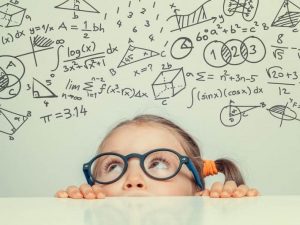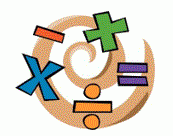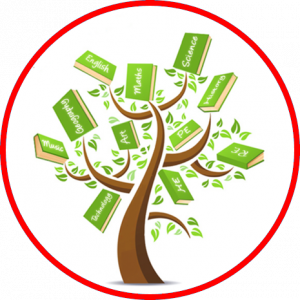
Early Mathematics is the development of young children’s skills from being able to count and recognise shape, to the ability to recognise, order, compare and calculate increasingly larger numbers in a variety of ways, measure, read time, handle money, fluently recall number facts, recognise shape and their properties and provides them with the skills in how to problem solve, reason and be resilient within their learning.
Children do not automatically learn this and skills need to be specifically taught that are sequential and progressive to develop knowledge and skills which can be securely demonstrated by our pupils. Providing high-quality learning experiences, allows us to create the necessary foundation to help children master essential Mathematical
 understanding and problem solving skills.
understanding and problem solving skills.
Once children have these necessary foundations, their journey in Mathematics continues through increasingly more complicated calculations, mathematical concepts, reasoning and problem solving that both engage and further develop their skills as a Mathematician.
Maths is an essential element of the Knypersley curriculum with clear, progressive learning that is child centred, creating curious resilient learners.
Our Curriculum Intention:

To ensure the children have a sound understanding of all mathematical concepts, we use the CPA approach (Concrete, Pictorial and Abstract). Children need to make links between practical equipment, pictures and abstract numbers because they learn in different ways. The CPA approach helps children learn new ideas and build on their existing knowledge by introducing abstract concepts in a more familiar and tangible way.
We build on this with rich connections across mathematical ideas to develop fluency, mathematical reasoning and competence in solving increasingly sophisticated problems.
This ensures that across the Children First Learning Partnership we provide a high quality maths curriculum that is both challenging and enjoyable, whilst expanding inquisitive and resilient minds.
Our Mathematics Policy:

At Knypersley we aim to achieve the following from our Mathematics curriculum:
- ‘Mastery’ is something we want all children to achieve and involves utilising a range of strategies to help children develop a deep and secure knowledge and understanding of maths.
- All staff model positive attitudes towards maths and a belief that all pupils can succeed.
- An enjoyment and curiosity of mathematics and for children to feel confident to become successful;
- Children’s abilities to use and apply mathematics to solve problems in both the classroom and in ‘real life’ contexts;
- A confidence to communicate ideas in written form and orally;
- Independent and collaborative ways of working, encouraging children to share ideas and solve problems together;
- A wide range of mathematical vocabulary to be modelled and used in the classroom;
- The children’s ability to recall mental facts accurately and quickly and using effective written calculation methods;
- Children’s logical thinking, reasoning and ability to problem solve as transferable life skills.
The document below details maths at Knypersley.
 The calculation policy shows the methods we teach to solve addition, subtraction, multiplication and division problems and the progression across the school. At Knypersley children are taught a range of mental and pencil-and-paper methods, and encouraged to consider when different methods are appropriate and efficient.
The calculation policy shows the methods we teach to solve addition, subtraction, multiplication and division problems and the progression across the school. At Knypersley children are taught a range of mental and pencil-and-paper methods, and encouraged to consider when different methods are appropriate and efficient.

Lessons are planned from the correct year groups Programmes of Study from The National Curriculum. Teachers will be aware of the prior learning that needs to be secure from previous year groups to ensure new content can be understood. The Programmes of Study are then broken down into smaller steps to ensure lessons are driven by sharp learning objectives that are progressively linked.
The document below shows a planned teaching sequence that a unit of Mathematics lessons may follow in order to promote the sequential and progressive development of knowledge which can be securely demonstrated by our pupils.

Individual lessons are carefully designed using the most effective teaching materials so that pupils are given the best opportunities to show their understanding. Variation is consciously built in by teachers so that pupils can apply their learning to different contexts and make links.
The document below identifies the key elements which we believe are important to incorporate into our Mathematics lessons in order for them to build on previously taught knowledge and also to deepen and secure key concepts.

To ensure children are taught and remember the appropriate knowledge and skills relating to Mathematics, we have created a progressive breakdown of the national curriculum expectations. This draws on the skills and knowledge being taught across all subject areas and hopes to contribute to the development of key concepts and themes in a deep and connected way.
Please click here to see our mathematics unit progression document

At Knypersley we understand that mathematical language is crucial to children’s mathematical thinking. We introduce new words from the curriculum in a suitable context, with relevant real objects, mathematical apparatus, pictures and/or diagrams, explaining their meanings carefully. Key vocabulary used in a topic are displayed on the maths working walls.
In most lessons children work in pairs; discussing, explaining, disagreeing and proving maths ideas are integral to building understanding. Children work together so that through their dialogue they can develop a much stronger understanding.
All adults model the correct use of mathematical language and insist pupils do the same. Sentence stems are used to support children to speak about their work in full sentences using the correct terminology. Children understand and remember concepts far better when an answer is given within the context of a number sentence.
Please click here to see our subject specific vocabulary for maths
 To ensure the highest emphasis is placed on both the teaching and the learning of new knowledge and skills we have also clarified when it will take place within our topics and the subject specific gains our children will make in terms of what they will know and be able to do.
To ensure the highest emphasis is placed on both the teaching and the learning of new knowledge and skills we have also clarified when it will take place within our topics and the subject specific gains our children will make in terms of what they will know and be able to do.
Please click here to see our Mathematics Year Group Breakdown
